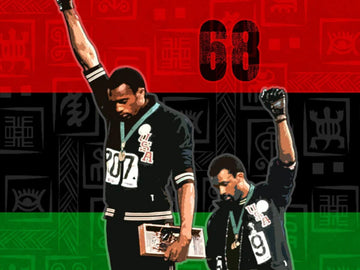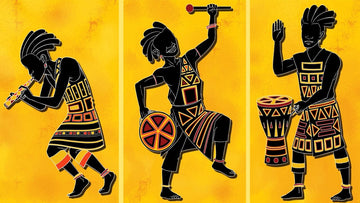
From a few activists in Oakland, California, the Black Panther Party has grown to become a household name both nationally and internationally. The rise of this power in the 20th century inspired millions around the world.
One can be impressed with the image of black panther warriors with leather jackets and guns parading the streets; But what keeps this organization running and growing is really the black panther party women.
Table of Contents
Fredrika Newton
In 1969, Fredrika joined the Black Panther Party. A year later, she met and became active in politics along with Huey Newton. In 1981, she married him and continued to be an active member of the Black Panther Party.

Fredrika Newton & Huey P. Newton by g. symone
Mrs. Newton began teaching immediately after entering the Panther Party. Mrs. Newton worked as a teacher at the Samuel Napier Youth Institute. In January 1971, the Black Panther Party founded the college assisting with the education of black children from low-income homes in Oakland, California. The Panthers believed that public schools consistently failed black students at the time.
To boost the talents of black pupils, the Party devised new teaching methods. The success of the school and its approaches got the attention of the Oakland Public School. The district attempted to implement similar procedures at other educational facilities. Mrs. Newton assisted in the production of the Panther Party's publication during her tenure at the institution. The party established a vital monthly.
After the death of her husband, she became more and more actively involved in Party activities and began to appear in the political arena. In 1993, with the help of David Hilliard, she founded the Huey P. Newton Foundation - an educational non-profit organization. The organization's programs under her direction focus on literacy programs, supporting African-Americans, and Party voters. In addition, this organization also organizes a few policies related to the health care regime.
Elaine Brown
Elaine Brown was born in 1943. She was a black civil rights activist as well as a writer and singer. Elaine Brown grew up in inner-city North Philadelphia with her mother, Dorothy Clark. She was enrolled in a private school, which was quite rare among single-mother families of African descent back then. During her childhood, she studied piano and classical ballet for many years at a predominantly Caucasian experimental elementary school. As a young woman, Elaine had few African-American friends and spent most of her time with whites.

After graduating from Philadelphia Girls' High School, a public preparatory school for gifted young women, she attended Temple University. She dropped out of Temple since she wished to compete in the entertainment industry. Brown later moved to Los Angeles, California, to become a professional musician. While in Los Angeles, Brown enrolled at the University of California Los Angeles. She then went on to study briefly at Mills College and Southwest University Law School.
While working at a club, she met Jay Richard Kennedy, a music executive who taught her about the intricacies of social justice. She received full education from Kennedy about the Civil Rights Movement. As a result, Brown eventually became active in the Black Liberation Movement. Brown's political activity expanded as a result of this key meeting, and she started working for the revolutionary publication Harambee. Soon after, Brown became the first representative of the Union of Black Students at the Black Congress in California. She attended the inaugural gathering of the Black Panther Party in April 1968, following the murder of Martin Luther King Jr.

Elaine Brown at Oscar Grant rally in Oakland October 23, 2010 23 by Steve Rhodes is licensed under CC BY-ND 2.0
Soon after that, Brown joined the Black Panther Party as a member of the ranks, studying revolutionary literature, promoting the publications of the Black Panther Party. She quickly helped the Party establish the first Free Breakfast for Kids program in Los Angeles, as well as the original Free Shuttle Program and the Party's Free Legal Aid Program.
After recording her songs at the request of the Party chief of staff, the album Seize the Time was born. Thanks to this success, she quickly became an editor for the publications of the Black Panther party in the Southern California branch. In 1971, after Eldridge Cleaver, Kathleen Cleaver's husband was expelled, Brown took his place and became minister of information. In 1973, Brown was commissioned by Black Panther Party founder and Secretary of Defense Huey P. Newton to record more songs. These songs led to the album Until We Free.
As part of Newton's directive, Brown unsuccessfully ran for Oakland city council in 1973, receiving 30% of the vote. She ran for re-election in 1975, losing again with 44% of the vote. Newton nominated Brown to head the Black Panther Party after he escaped to Cuba to avoid prosecution in 1974. Brown is the party's first and only female leader since its founding. She chaired the Black Panther Party from 1974 to 1977.

Kathleen Cleaver
She is a black professor, attorney, author, and black civil rights, activist. Kathleen Neal Cleaver was raised in Dallas, Texas, to a sociology professor at Wiley College and a mathematician parent. Her parents spent many of her early years overseas due to her father's job requirements.
Cleaver graduated from the Georgia School in Philadelphia in 1963. In 1966, when she was a sophomore at Barnard College, she dropped out of her studies. She then worked full-time with the Student Nonviolent Coordinating Committee, where she served in the Campus Program.
Cleaver served as the Black Panther Party's publicity secretary from 1967 to 1971. She was also the party's first female member who attended the Central Committee. She married Eldridge Cleaver in 1967. She moved to the United States in late 1975, after years of isolation from her previous spouse. She then received a B.A. in history from Yale University in 1984 and became the director of Phi Beta Kappa.

Kathleen Cleaver by Glaurung_Quena is licensed under CC BY-ND 2.0
In 1989 Cleaver received a degree from Yale University and became an effective partner at a New York law firm. Leon Higginbotham of the U.S. Court of Appeals for the Third Circuit. In addition to her role as assistant professor of law at Emory University, Cleaver serves on the Racism and Ethnicity Division of the Georgia Supreme Court Committee. She devoted many years to the defense of a former Black Panther Party leader Elmer "Geronimo" Pratt. Elmer "Geronimo" Pratt then won his petition in 1997 after spending 27 years in prison for a murder that he did not commit.
During this time, she also served as a non-permanent faculty member at several law schools across the United States. Her main areas of teaching are legal ethics and litigation. She is also the host of a course on the role of women in the Black Civil Right Movements. As well as this, she held the position of Senior Research Associate at the school she attended. Not only that, but she is also on the executive committee of the international Black Panther film festival. On the other hand, she also received tremendous support from organizations such as The Schomburg Center for Research in Black Culture and the New York Public Library to complete "Memoirs of Love and War."

kathleen cleaver by samuelalove is licensed under CC BY-ND 2.0
Her work has been published in a variety of periodicals and journals, notably “The Black Panther,” “The Boston Globe,” “The Village Voice,” etc. She contributed essays to several books, including "The Promise of Multiculturalism: Education", "Critical Race Feminism" and "Critical White Studies: Looking Behind the Mirror". Among them, the most impressive work is "Liberation, Imagination, and the Black Panther Party" in which she is the composer, editor, and translator. In addition, she published an autobiography about the Black Panther party called "The Black Panther Party Reconsidered". In 2005, Cleaver was helping as an inaugural Fletcher Foundation Fellow.
Angela Davis
Angela Davis, full name is Angela Yvonne Davis, born on January 26, 1944, in Birmingham, United States. She was an internationally renowned black American militia activist during her imprisonment and trial on conspiracy charges in 1970–1972.

Philippe Halsman , Public domain, via Wikimedia Commons
Davis went through home education and studied abroad before enrolling as a PhD applicant at the University of California. Because of her political views, despite her stellar record as a faculty member on the Los Angeles University campus, the California Board of Trustees in 1970 refused to renew her appointment as a member of the philosophy faculty. On the other hand, she also promoted herself to become a professor of consciousness history at the University of California. In 1995, amid much controversy, she was appointed to the chair of principal. She became professor emeritus in 2008.
Davis then grew particularly connected to a young revolutionary, George Jackson, one of the so-called Soledad Brothers. This was also the time when she was especially active with members of the Black Panther Party. While there is some question as to whether Davis was ever a full-fledged member of the Panthers, there's no denying she's closely linked to the party.
On August 7, 1970, Jackson's brother Jonathan was among four people killed in a fugitive from the Court of Justice in Marin County, California. Suspected of complicity, Davis was arrested and became one of the most wanted criminals of the Federal Bureau of Investigation. In October 1970, she was arrested in New York on charges of conspiracy to be complicit. A short time later, she was escorted to California. There, she was acquitted of all charges by an all-white jury.

Columbia GSAPP, CC BY 2.0, via Wikimedia Commons
In 1974, she published Angela Davis: An Autobiography (republished 1988). In 1980, she ran for vice president of the United States but was unsuccessful. Among her works are the books Women, Race, & Class (1981), Women, Culture, and Politics (1989), and Blues Legacy and Black Feminism: Gertrude "Ma" Rainey, Bessie Smith, and Billie Holiday (1998), and Are Prisons Outdated? (2003).
------------------
In the 70s of the last century, Black panther party women played a pivotal role with a ratio of nearly 2 to 3. Obviously, this was a huge improvement compared to the political organizations at that time.
Today, these women continue to fight for justice and racial equality. Hopefully, the role models of these Black Panther Party women will inspire you. We are inheriting the fruits of their struggles, so let's fight for the fruits of future generations.



